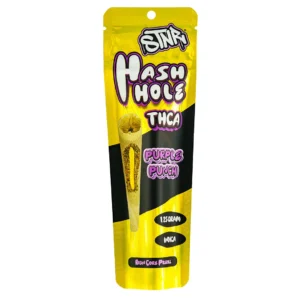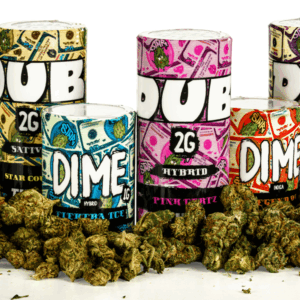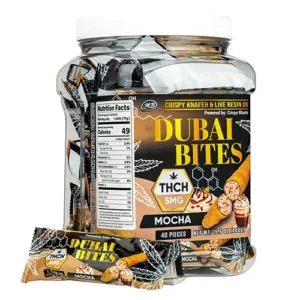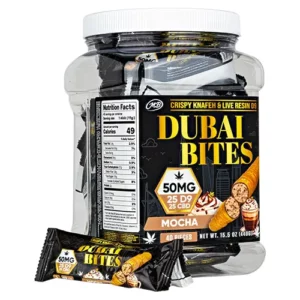CBD gummies have taken the wellness world by storm, offering a tasty and convenient way to consume cannabidiol. But as their popularity soars, so do questions about their composition—particularly whether these chewy treats contain THC, the psychoactive compound found in marijuana. In this comprehensive guide, we’ll bite into the truth about CBD gummies, their ingredients, and what you need to know before popping one in your mouth.
Introduction to CBD Gummies and Their Rising Popularity
The wellness industry has witnessed a surge in cannabidiol candy popularity, with CBD gummies leading the charge. These colorful, flavorful treats have become a go-to option for those seeking the potential benefits of CBD in a familiar, enjoyable form. But what exactly is CBD, and why have these gummies become such a hit?
Brief Explanation of What CBD Is
CBD, short for cannabidiol, is a naturally occurring compound found in the cannabis plant. Unlike its cousin THC (tetrahydrocannabinol), CBD doesn’t produce a “high” or intoxicating effect. Instead, it’s celebrated for its potential therapeutic properties, which have piqued the interest of both consumers and researchers alike.
CBD interacts with the body’s endocannabinoid system, a complex network of receptors that plays a role in regulating various physiological processes. This interaction is believed to contribute to CBD’s reported effects on pain, anxiety, sleep, and other aspects of health and wellness.
Overview of CBD Gummies as a Consumption Method
CBD gummies have emerged as a popular answer to the question of what is CBD candy. These chewy confections offer a discreet and palatable way to consume CBD, masking the earthy taste often associated with hemp products. They come in various flavors, shapes, and dosages, catering to different preferences and needs.
The appeal of CBD gummies lies in their simplicity and familiarity. Unlike oils or tinctures that require measuring, gummies provide a pre-measured dose of CBD in each piece. This makes it easy for users to track their intake and adjust as needed. Moreover, the act of eating a gummy is far less conspicuous than dropping oil under the tongue, allowing for more discreet consumption in public settings.
Another advantage of CBD gummies is their long shelf life and portability. They can be easily tucked into a bag or pocket for on-the-go use, making them a convenient option for busy lifestyles. This accessibility has contributed significantly to their rising popularity among CBD enthusiasts and newcomers alike.
As the market for CBD products expands, gummies have carved out a significant niche. They appeal to a wide demographic, from young adults looking for stress relief to older individuals seeking alternative ways to manage discomfort. The non-intimidating nature of gummies has also helped to normalize CBD use, making it more approachable for those who might be hesitant to try other forms of cannabis-derived products.
However, with this popularity comes the need for consumer education. Understanding what goes into CBD gummies, including the potential presence of THC, is crucial for making informed decisions about their use. As we delve deeper into this topic, we’ll explore the intricacies of CBD and THC, the different types of CBD gummies available, and what you should know to choose the right product for your needs.
Understanding the Critical Difference: CBD vs. THC
When discussing CBD gummies, it’s crucial to understand the fundamental differences between CBD and THC. The question of “what is CBD vs thc” is common among those new to cannabis-derived products, and for good reason—these two compounds, while related, have distinct properties and effects.
Chemical Structures and How They Affect the Body
CBD (cannabidiol) and THC (tetrahydrocannabinol) are both cannabinoids found in the cannabis plant. Despite their similar origins, their chemical structures differ slightly, leading to vastly different effects on the human body.
THC is known for its psychoactive properties—it’s the compound responsible for the “high” associated with marijuana use. It binds strongly to the CB1 receptors in the brain, which are part of the endocannabinoid system. This binding action is what produces the euphoric sensations and altered perceptions that marijuana users experience.
CBD, on the other hand, doesn’t bind directly to these receptors. Instead, it interacts with the endocannabinoid system in more subtle ways. It can influence the body’s own endocannabinoids and may even interact with non-cannabinoid receptors. This is why CBD doesn’t produce a high and is generally considered non-intoxicating.
The benefits of CBD vs THC are often compared, but it’s important to note that they can have different effects:
- CBD is being studied for its potential to:
- Reduce anxiety and stress
- Alleviate pain and inflammation
- Improve sleep quality
- Help with certain forms of epilepsy
- THC is associated with:
- Euphoria and altered perception
- Pain relief
- Increased appetite
- Potential for relaxation or anxiety, depending on the individual
It’s worth noting that while many people report positive experiences with both compounds, research is ongoing, and more studies are needed to fully understand their effects.
Legal Implications of Both Compounds
The legal status of CBD and THC products varies significantly and can be complex. In general, THC remains a controlled substance in many parts of the world due to its psychoactive properties. In the United States, marijuana (which contains high levels of THC) is still federally illegal, although many states have legalized it for medical or recreational use.
CBD, derived from hemp (cannabis plants with less than 0.3% THC), was made federally legal in the U.S. with the passage of the 2018 Farm Bill. However, the legal landscape for CBD is still evolving, and regulations can vary by state and country.
When it comes to CBD gummies, their legality often depends on their THC content:
- Full-spectrum CBD gummies may contain trace amounts of THC (up to 0.3% in the U.S.)
- Broad-spectrum and CBD isolate gummies typically contain no detectable THC
It’s important for consumers to be aware of the laws in their area and to purchase CBD products from reputable sources that provide third-party lab testing results. These tests can verify the CBD and THC content, ensuring that the product complies with legal limits.
Understanding the differences between CBD and THC is crucial for anyone considering CBD gummies. While both compounds come from the same plant family, their effects and legal status can vary widely. As the cannabis industry continues to evolve, staying informed about these distinctions will help consumers make educated choices about which products are right for them.
Exploring the Types of CBD Gummies: Full Spectrum, Broad Spectrum, and Isolate
When shopping for CBD gummies, you’ll encounter three main types: full spectrum, broad spectrum, and isolate. Each type has a unique cannabinoid content profile, which can significantly impact your experience and the potential effects of the product. Let’s dive into each category to understand what sets them apart and whether they contain THC.
Full-Spectrum CBD Gummies: Do They Contain THC?
Full-spectrum CBD gummies are made with an extract that contains all the naturally occurring compounds found in the hemp plant, including CBD, other cannabinoids, terpenes, and yes, trace amounts of THC. The THC content in these gummies is typically very low (0.3% or less in the United States) to comply with federal regulations.
The presence of all these compounds is believed to create an “entourage effect,” where the various elements work together synergistically, potentially enhancing the overall benefits of CBD. However, it’s important to note that while the THC content is minimal, it may still be detectable in sensitive drug tests.
Key points about full-spectrum CBD gummies:
- Contain a wide range of cannabinoids, including trace amounts of THC
- May produce a more potent effect due to the entourage effect
- Not suitable for those who want to avoid THC completely
- Could potentially trigger a positive drug test result
Broad-Spectrum CBD Gummies: THC-Free Alternative?
Broad-spectrum CBD gummies offer a middle ground between full-spectrum and isolate products. They contain a range of cannabinoids and terpenes found in the hemp plant, but with one key difference: the THC has been removed. This makes broad-spectrum products an attractive option for those seeking the potential benefits of multiple cannabinoids without the risk of THC exposure.
The THC-free meaning in broad-spectrum products is crucial for consumers who want to avoid THC entirely, whether due to personal preference, workplace drug testing concerns, or legal considerations. However, it’s important to verify the product’s cannabinoid content through third-party lab reports, as some products labeled as “THC-free” may still contain trace amounts.
Characteristics of broad-spectrum CBD gummies:
- Contain multiple cannabinoids and terpenes, but no THC
- May offer some of the benefits of the entourage effect
- Suitable for those who want to avoid THC but desire other cannabis compounds
- Less likely to cause a positive drug test result compared to full-spectrum products
CBD Isolate Gummies: Purest Form Without THC
CBD isolate gummies contain only pure CBD, with all other compounds from the hemp plant removed. This means they are entirely THC-free and do not contain any other cannabinoids or terpenes. CBD isolate is the purest form of CBD available, typically reaching 99% purity or higher.
These gummies are ideal for individuals who want to experience the potential benefits of CBD without any other cannabis compounds. They’re also the safest option for those who undergo regular drug testing or have concerns about THC sensitivity.
Key aspects of CBD isolate gummies:
- Contain only CBD, with no other cannabinoids or terpenes
- Guaranteed to be THC-free
- Offer the most precise dosing of CBD
- May be less effective than full or broad-spectrum products due to the absence of the entourage effect
- Least likely to cause any drug test complications
When choosing CBD gummies, it’s crucial to consider your personal needs and circumstances. Whether you opt for full-spectrum, broad-spectrum, or isolate gummies, always purchase from reputable sources that provide detailed information about their products’ cannabinoid content and offer third-party lab test results.
It’s also important to note that regardless of the type of CBD gummy, these products are not intended for children and should be kept out of reach of minors. Always consult with a healthcare professional before starting any new supplement regimen, especially if you have existing health conditions or are taking medications.
Health Benefits and Therapeutic Uses of CBD Gummies
As CBD gummies gain popularity, many people are curious about their potential health benefits and therapeutic uses. While research is ongoing, early studies and anecdotal evidence suggest that CBD may offer a range of potential benefits. Let’s explore what current research says about the efficacy of CBD gummies as a form of CBD treatment.
Current Research Findings on Efficacy
The benefits of gummies containing CBD have been the subject of numerous studies in recent years. While more research is needed to fully understand the effects of CBD, preliminary findings are promising in several areas:
- Pain Management: One of the most common questions is “are gummies good for pain?” A 2020 study published in the Journal of Pain Research found that CBD may help reduce chronic pain by impacting endocannabinoid receptor activity, reducing inflammation, and interacting with neurotransmitters. In fact, 62% of CBD users reported using CBD to treat a medical condition, with pain being the most common reason (Corroon & Phillips, 2018).
- Anxiety and Depression: A 2019 study in the Brazilian Journal of Psychiatry showed that CBD could have anxiolytic effects. In this study, 57% of men and 49% of women who used CBD reported decreased anxiety levels. Another study found that 78% of participants who used CBD for anxiety reported improvements in their symptoms within the first month (Blessing et al., 2015).
- Sleep Disorders: Research suggests that CBD may help with both falling asleep and staying asleep. A large case series published in 2019 found that 66.7% of patients reported better sleep after one month of CBD treatment (Shannon et al., 2019).
- Epilepsy: One of the most well-documented uses of CBD is in the treatment of epilepsy. The FDA has approved a CBD-based medication, Epidiolex, for treating certain types of epilepsy. Clinical trials showed that this medication reduced seizure frequency by 44% in patients with Lennox-Gastaut syndrome (Thiele et al., 2018).
- Neuroprotective Properties: Some research suggests that CBD may have neuroprotective properties. A study published in the Journal of Alzheimer’s Disease found that CBD may help prevent the development of social recognition deficit in subjects (Cheng et al., 2014).
While these findings are encouraging, it’s important to note that many of these studies were not specifically conducted using CBD gummies. The efficacy of medicinal gummies may vary depending on factors such as dosage, bioavailability, and individual physiology.
Here are some key statistics related to CBD use and potential benefits:
- A survey by SingleCare in 2020 found that 33% of Americans have used CBD products.
- According to a 2019 Gallup poll, 14% of Americans say they use CBD products, with 40% using them for pain, 20% for anxiety, and 11% for sleep.
- A 2018 study found that 62% of CBD users reported using CBD to treat a medical condition, with the top three conditions being pain, anxiety, and depression (Corroon & Phillips, 2018).
- In a 2019 survey by Consumer Reports, about 64 million Americans reported trying CBD in the past 24 months.
It’s crucial to understand that while CBD shows promise in many areas, more research is needed to fully understand its effects and optimal usage. CBD gummies, like other CBD products, are not intended to diagnose, treat, cure, or prevent any disease. Always consult with a healthcare professional before starting any new supplement regimen, especially if you have existing health conditions or are taking medications.
As research continues, we can expect to gain a clearer understanding of the potential benefits and limitations of CBD gummies as a therapeutic option. For now, many users report positive experiences with CBD for various wellness purposes, but individual results may vary.
Potential Risks and Side Effects of Consuming CBD Gummies With THC
While CBD gummies are generally considered safe for most people, it’s important to be aware of potential risks and side effects, especially when consuming products that contain THC. Understanding these potential issues can help users make informed decisions about their CBD use.
CBD risks and side effects are typically mild, but they can occur, particularly when taking higher doses or when the product contains THC. It’s crucial to distinguish between the effects of CBD alone and those that might be attributed to THC content in full-spectrum products.
Common CBD negative side effects may include:
- Dry mouth
- Drowsiness or fatigue
- Changes in appetite
- Diarrhea
- Nausea
When it comes to CBD gummies specifically, some users report side effects of gummy bears that are more related to the candy itself, such as:
- Stomach discomfort due to sugar content
- Dental concerns from frequent consumption of sugary gummies
- Potential allergic reactions to ingredients in the gummy base
What are the side effects of CBD edible gummies that contain THC? These can be more pronounced and may include:
- Altered perception of time
- Impaired memory
- Increased heart rate
- Anxiety or paranoia (especially with higher THC doses)
- Red eyes
- Coordination problems
It’s important to note that thc oil effects can vary greatly depending on the individual and the amount consumed. Even small amounts of THC can produce noticeable effects in some people, while others may not experience significant changes.
Interactions with Medications and Health Conditions
One of the most critical considerations when using CBD gummies, especially those containing THC, is their potential interaction with medications and existing health conditions. CBD can affect how your body processes certain medications, potentially altering their effectiveness or increasing the risk of side effects.
Key points to consider:
- Blood Thinners: CBD may increase the effects of blood-thinning medications like warfarin, potentially increasing the risk of bleeding.
- Antiepileptic Drugs: CBD can interact with some antiepileptic drugs, potentially affecting their efficacy or increasing side effects.
- Liver Enzymes: CBD can inhibit certain liver enzymes responsible for metabolizing many medications. This can lead to higher levels of these medications in the bloodstream.
- Blood Pressure Medications: CBD may lower blood pressure, which could be problematic for individuals taking blood pressure medications.
- Immunosuppressants: There’s potential for CBD to interact with immunosuppressant drugs, although more research is needed in this area.
- Mental Health Conditions: While CBD is being studied for its potential benefits in mental health, individuals with conditions like bipolar disorder or schizophrenia should be cautious, as THC can potentially exacerbate symptoms.
- Pregnancy and Breastfeeding: The effects of CBD and THC on fetal development and infants are not fully understood, so it’s generally advised to avoid these products during pregnancy and while breastfeeding.
It’s crucial to consult with a healthcare professional before using CBD gummies, especially if you:
- Are taking any medications
- Have existing health conditions
- Are pregnant or breastfeeding
- Have a history of substance abuse
- Are planning to undergo surgery
Healthcare providers can offer personalized advice based on your individual health profile and can help monitor for any potential interactions or side effects.
Remember, while CBD gummies can offer potential benefits, they are not a substitute for professional medical advice or treatment. Always prioritize your health and safety by being informed and consulting with healthcare professionals when considering CBD products, especially those containing THC.
How Long Does THC From CBD Gummies Stay in Your System?
Understanding how long THC from CBD gummies can remain in your system is crucial, especially if you’re subject to drug testing or concerned about the lingering effects of CBD. While CBD itself doesn’t typically show up on standard drug tests, the trace amounts of THC in full-spectrum products can potentially be detected.
The duration THC stays in your system can vary significantly based on several factors:
- Frequency of use: Regular consumers of CBD gummies with THC may have detectable levels for a longer period compared to occasional users.
- Dosage: Higher doses of THC-containing CBD gummies can lead to longer detection times.
- Metabolism: Individual metabolic rates can affect how quickly THC is processed and eliminated from the body.
- Body composition: THC is fat-soluble, meaning it can be stored in fat cells. People with higher body fat percentages may retain THC for longer periods.
On average, THC from CBD gummies may be detectable in:
- Urine: Up to 3-15 days for occasional users, and up to 30 days or more for regular users
- Blood: 1-2 days
- Saliva: 1-3 days
- Hair: Up to 90 days (though this method is less common and typically not used for CBD/THC testing)
It’s important to note that these are general estimates, and individual experiences may vary.
Factors That Influence Detection Times in Drug Tests
Several factors can influence how long THC from CBD gummies remains detectable in drug tests:
- Type of drug test: Different tests have varying sensitivity levels. For instance, hair tests can detect THC for a much longer period than urine tests.
- THC concentration in the product: Full-spectrum CBD gummies contain more THC than broad-spectrum or isolate products, potentially leading to longer detection times.
- Individual physiology: Factors such as age, gender, and overall health can affect how quickly your body processes and eliminates THC.
- Hydration levels: Proper hydration can help flush THC metabolites from your system more quickly, although this won’t guarantee faster elimination.
- Exercise: While exercise can potentially help metabolize THC faster, it may also release stored THC from fat cells, temporarily increasing blood THC levels.
- Diet: A high-fiber diet may help speed up the elimination of THC metabolites through feces.
- Liver function: The liver plays a crucial role in metabolizing THC. Individuals with liver issues may process THC more slowly.
It’s worth noting that the effects of CBD from gummies, which are not psychoactive, typically last 4-6 hours. However, the presence of THC in your system doesn’t necessarily mean you’re experiencing its effects.
For those concerned about drug testing, it’s advisable to:
- Choose CBD isolate or broad-spectrum products that are THC-free
- Request to see third-party lab results confirming THC content
- Inform your employer or relevant authorities if you’re using CBD products for health reasons
- Consider discussing alternative testing methods with your employer if you’re using CBD for medical purposes
Remember, while CBD itself is generally not tested for in standard drug screenings, the trace amounts of THC in some CBD gummies could potentially trigger a positive result. If you’re subject to drug testing, it’s crucial to be aware of the THC content in your CBD products and understand the potential risks involved.
Guidelines for Choosing Safe and Effective CBD Gummies
When it comes to selecting CBD gummies, CBD safety should be your top priority. With the market flooded with various products, it’s crucial to know how to identify high-quality, safe, and effective options. Here are some guidelines to help you make an informed choice.
Importance of Certificate of Analysis (COA)
A Certificate of Analysis (COA) is a document provided by a third-party laboratory that verifies the contents of a CBD product. It’s an essential tool for ensuring the safety and quality of CBD gummies. Here’s why COAs are crucial:
- Verification of CBD content: COAs confirm that the product contains the amount of CBD advertised on the label.
- THC levels: They reveal the exact THC content, ensuring it’s within legal limits (typically 0.3% or less).
- Contaminant testing: COAs show whether the product is free from harmful contaminants like pesticides, heavy metals, and microbial organisms.
- Terpene profile: For full-spectrum products, COAs can provide information on the terpene content, which contributes to the entourage effect.
According to a study published in the Journal of the American Medical Association, nearly 70% of CBD products are mislabeled [source: https://jamanetwork.com/journals/jama/fullarticle/2661569]. This underscores the importance of COAs in verifying product contents.
When reviewing a COA, look for:
- The name of the testing laboratory
- The date of testing (should be recent)
- Batch number matching the product
- Clear indication of cannabinoid content
- Results of contaminant testing
What to Look for on Product Labels
Product labels provide crucial information about CBD gummies. Here’s what to look for:
- CBD content: The label should clearly state the amount of CBD per gummy and per container.
- Type of CBD: Look for indications of whether it’s full-spectrum, broad-spectrum, or CBD isolate.
- Ingredients list: All ingredients should be clearly listed, including any potential allergens.
- Serving size: This helps you understand how much CBD you’re consuming per dose.
- Manufacturer information: Reputable companies provide contact information and a website.
- QR code or batch number: This allows you to look up the specific COA for your product.
- Usage instructions: Look for clear guidelines on how to use the product safely.
- Expiration date: Ensure the product is fresh and will remain potent throughout its use.
Additional tips for choosing safe and effective CBD gummies:
- Research the brand: Look for companies with a good reputation and positive customer reviews. The FDA maintains a list of companies that have received warning letters for making unsubstantiated claims [source: https://www.fda.gov/news-events/public-health-focus/warning-letters-and-test-results-cannabidiol-related-products].
- Check for organic certification: Organic hemp is less likely to contain pesticides and other harmful chemicals.
- Consider the extraction method: CO2 extraction is generally considered the safest and most effective method.
- Look for GMP certification: Good Manufacturing Practice (GMP) certification indicates that the product was manufactured in a facility that follows strict quality control standards.
- Avoid outlandish health claims: Be wary of products that promise to cure serious medical conditions. The FDA has not approved CBD for treating most health issues [source: https://www.fda.gov/consumers/consumer-updates/what-you-need-know-and-what-were-working-find-out-about-products-containing-cannabis-or-cannabis].
By following these guidelines, you can significantly increase your chances of choosing CBD gummies that are safe, effective, and accurately labeled. Remember, when in doubt, consult with a healthcare professional, especially if you have existing health conditions or are taking medications.
Concluding Thoughts: Maximizing Benefits While Minimizing Risks
As we’ve explored throughout this article, CBD gummies offer a convenient and enjoyable way to consume CBD, but they also come with considerations regarding THC content and potential effects. To maximize the benefits while minimizing risks, it’s crucial to approach CBD gummy consumption with knowledge and caution.
Key takeaways for responsible CBD gummy use include:
- Start with low doses and gradually increase as needed
- Choose products from reputable manufacturers with transparent testing practices
- Be aware of the type of CBD (full-spectrum, broad-spectrum, or isolate) in your gummies
- Consider potential drug interactions and consult with a healthcare professional
- Stay informed about local laws and regulations regarding CBD and THC
Remember, everyone’s body reacts differently to CBD and THC. What works for one person may not work the same way for another. Listening to your body and adjusting your usage accordingly is essential for a positive experience with CBD gummies.
The Future of CBD Legislation and Research
The landscape of CBD legislation and research is rapidly evolving. As more studies are conducted and more data becomes available, we can expect to see changes in how CBD products, including gummies, are regulated and perceived.
Some potential developments on the horizon include:
- Clearer FDA guidelines: The FDA is working on developing more comprehensive regulations for CBD products, which could lead to stricter quality control and labeling requirements.
- Expanded research: As restrictions on cannabis research ease, we may see more extensive studies on the long-term effects and potential therapeutic uses of CBD.
- Standardization of testing: There may be efforts to standardize testing methods and reporting across the industry, making it easier for consumers to compare products.
- International harmonization: As CBD becomes more globally accepted, we might see efforts to harmonize regulations across different countries, potentially opening up international markets.
- Novel delivery methods: Research into new technologies for CBD delivery could lead to more effective and targeted products.
- Personalized CBD formulations: Advances in understanding how individuals respond to CBD could lead to more personalized product recommendations.
As the CBD industry continues to grow and mature, it’s likely that we’ll see improvements in product quality, safety, and efficacy. However, it’s important for consumers to remain vigilant and continue to educate themselves about CBD products.
In conclusion, CBD gummies can be a valuable addition to many people’s wellness routines when used responsibly. By staying informed about the latest research, understanding product labels, and being aware of potential risks and benefits, consumers can make educated decisions about incorporating CBD gummies into their lives. As always, when in doubt, consult with a healthcare professional to ensure that CBD use aligns with your individual health needs and goals.










